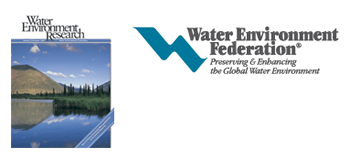 10 October 2011 – Several investigators have reported higher densities of indicator bacteria after dewatering of anaerobically digested biosolids, an inevitable byproduct of the wastewater treatment process. The effects of these processes on the sudden increase and regrowth of fecal coliform and E.coli are examined in the latest issue of Water Environment Research (WER), the popular journal published by the Water Environment Federation (WEF).
10 October 2011 – Several investigators have reported higher densities of indicator bacteria after dewatering of anaerobically digested biosolids, an inevitable byproduct of the wastewater treatment process. The effects of these processes on the sudden increase and regrowth of fecal coliform and E.coli are examined in the latest issue of Water Environment Research (WER), the popular journal published by the Water Environment Federation (WEF).
Formerly available to subscribers only, selected WER articles are available free to the public on a monthly basis through an open-access program.
“This month’s open article concerns regrowth of indicator organisms, and by implication pathogens, in anaerobically digested biosolids,” said WER Editor-in-Chief Michael Stenstrom. “This is an important question for biosolids disposal since many of the available alternatives depend on compliance with strict limits based on indicator organisms. Recent work on thermophilic digestion has sometimes noted rapid regrowth of indicators organisms.”
(Download the open-access article: “The Effect of Digestion and Dewatering on Sudden Increases and Regrowth of Indicator Bacteria after Dewatering” by Yen-Chih Chen, Sudhir N. Murthy, Donald Hendrickson, Gordon Araujo, and Matthew J. Higgins.)
Published since 1928, WER features peer-reviewed research papers and research notes, as well as state-of-the-art and critical reviews on original, fundamental, and applied research in all scientific and technical areas related to water quality, pollution control, and management. Originally known as the Sewage Works Journal, WER is available in both print and online formats and receives approximately 300 new research submissions each year.
This month’s issue also features a special WEFTEC focus with an expanded format that includes an increased page count and WER’s annual Literature Review CD-Rom.
WEFTEC 2011–WEF’s 84th Annual Technical Exhibition and Conference–will be held at the Los Angeles Convention Center in Los Angeles, Calif., October 15-19. As the world’s largest annual water quality event, WEFTEC provides the latest technologies and services for water environment preservation, restoration, and sustainability. For more information, visit www.weftec.org.
About WEF
Formed in 1928, the Water Environment Federation (WEF) is a not-for-profit technical and educational organization with 36,000 individual members and 75 affiliated Member Associations representing water quality professionals around the world. WEF and its Member Associations proudly work to achieve the mission of preserving and enhancing the global water environment. For more information, visit www.wef.org
SOURCE: The Water Environment Federation











